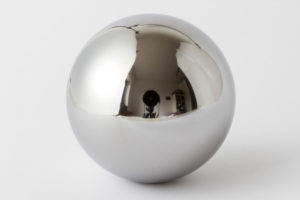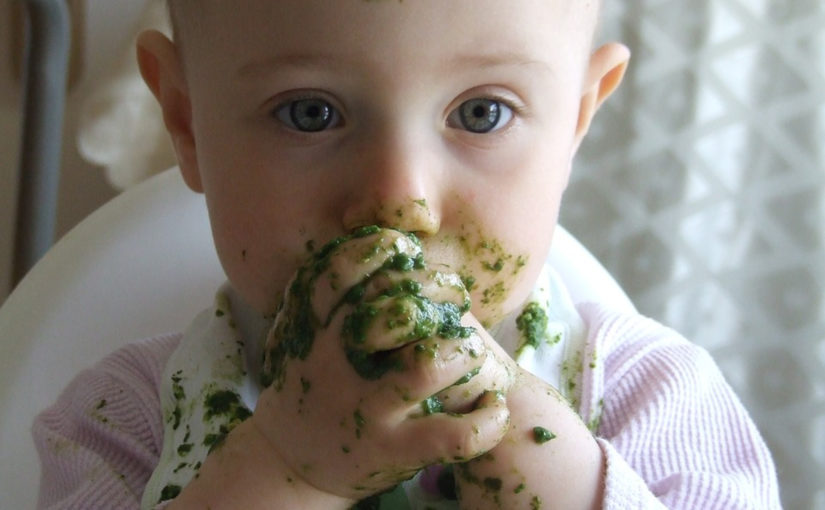The other day someone asked me one of the most common questions I hear:
How do you know what to talk about?
If you have a very specific assignment from the boss, then you may be given very strict limits, however, more often than not when you are given a public speaking “opportunity,” you are also given a lot of leeway.
You know that supervisor that never seems to fumble for words during a presentation? You know that coworker that always seems to say things just right? You know that professional speaker that seems to have the perfect story?
How do they know what to say?
I’ll tell you their dirty little secret. How do they know what to say? They don’t!
They are just like you. The first time they try to articulate the point, the first time they give a speech, the first time they tell the story–they sound just as mediocre as everyone else.
The truth is that those polished wordsmiths and confident speakers are almost always hiding the fact the what you hear is NOT improvised. Even when professional motivational speakers act like they are improvising, they are usually NOT.
 When you hear a fantastic speech, more often than not, the truth is that the presenter has given the exact same speech before. When you hear a professional speaker tell a good story, I’m willing to bet that professional has given that story 200 times.
When you hear a fantastic speech, more often than not, the truth is that the presenter has given the exact same speech before. When you hear a professional speaker tell a good story, I’m willing to bet that professional has given that story 200 times.
I’m not talking about practice! You’re not hearing the practice! Click here for an article on practicing presentation skills. You’re not hearing the first draft. You’re not hearing the second draft. You’re hearing the 200th draft.
It’s not even a “secret” really. The guy at the office might not admit that he’s been practicing his stories out before he tells them to you, but most profession speakers will freely admit that they give the same speech over and over.
 I was chatting not long ago with a well known professional speaker. After his speech that I attended, he was on his way to give a presentation where he would be paid $9,000 for an hour long keynote. That fee is on the high end of the middle of the road. The more famous speakers can earn quite a bit more.
I was chatting not long ago with a well known professional speaker. After his speech that I attended, he was on his way to give a presentation where he would be paid $9,000 for an hour long keynote. That fee is on the high end of the middle of the road. The more famous speakers can earn quite a bit more.
Probing for information about his content I asked:
How many different presentations do you give?
He wasn’t keeping a secrets. He freely admitted:
If you heard me speak to another group, you’d pretty much hear the same presentation.
Personally, I have about 10-12 hours of content for my SpeechDeck workshops, so I used that number to get a more specific answer. I probed deeper:
So how much content do you have pre-prepared, ready to go? More than 10 hours?
He didn’t want to give me a specific number but settled on this vague reply:
Probably less than 10 hours.
Let me tell you. If you heard the way he said it, he didn’t mean “less than 10 hours,” he meant “A LOT less than 10 hours.” My guess is less than 5 hours.
This speaker was more of a keynote speaker rather than a seminar instructor. He probably had about 3-4 different keynotes ready to go at a moment’s notice.
If you don’t speak often, 5 hours of content might seem like a lot, but keep in mind this was a professional speaker. Speaking was his whole job, and he still had less than one day’s worth of content.
After a little more back and forth, I finally stumbled across the right question:
How often do you develop new content?
His answer:
Every year.
Think about that answer!
That’s the dirty little secret. When you hear polished, professional, strikingly articulate, amazingly perfect presentations–it’s not their first time at the rodeo.
He spends an ENTIRE YEAR working on content, practicing, and testing new content before he uses it in a paid job! That’s why it’s worth $9,000 per hour–because he’s already spent hundreds, if not thousands of hours making sure it works.
So what? If you’re not a professional speaker, you probably don’t have that much time to invest. How does that help you?
 The “Secret”
The “Secret”
How do YOU know what to say? Start with the “secret.”
Always include something that you know will work. Start with that story, or that example, or that demonstration that you have lots of experience presenting.
Just like a professional speaker, start with something you can do naturally, seamlessly, and unconsciously. Don’t start from scratch. The secret is simple:
Start with what you know works.
Every time you tell the same story one more time, you will do it just a little bit better. Each time, you will automatically start to emphasize the parts that work and edit out the parts the don’t. Without any “practice” you will naturally repeat the lines that get laughs, and shorten the parts that drag.
I realize if you’re 14, or don’t have a lot of public speaking experience, you might not know what works. But everybody has something they love to share. Start with the content you love to share with friends and family.
Admittedly, this doesn’t work as well if you speak to the same group of people every time. You can’t tell the same people the same example, too often.
Haven’t you noticed that you’re parents (spouse, grandparents, father-in-law, etc) tell the same stories over and over?
This part of the presentation skills “secret” requires that you find excuses to speak to new people and different audiences as often as possible so that you can repeat the same content.
After about 200 times, you’re story can be just as good as the professionals. It probably won’t even take 200! Image how good that story will be after 20!
That’s the secret: start with what you know works.
The “Dirty”
Next, add some dirt. Every time you have the opportunity to speak in front of a group, or present at work, or chat with friends, ADD SOME DIRT!
Pick something new. Pick a story or quote or example you’ve never told in public, or perhaps try a joke that you’re not sure will get a laugh. It doesn’t matter what it is.
 “Dirty” just means is not cleaned up yet. It’s dirty, not because it’s bad. It’s just not polished yet. It’s probably pure gold. You just won’t see the brilliance of the polished shine until you try it 200 times–or at least once.
“Dirty” just means is not cleaned up yet. It’s dirty, not because it’s bad. It’s just not polished yet. It’s probably pure gold. You just won’t see the brilliance of the polished shine until you try it 200 times–or at least once.
There has to be a first time.
I based my SpeechDeck communication skills card deck on this principle. Just pick one card from the deck before each presentation or meeting. Each card has a simple public speaking technique detailed in step by step instructions. Just pick one technique and try it.
Professional Grade Speaking Skills
Worst case scenario, when you try something “dirty,” it won’t work. Maybe they don’t laugh. Maybe they don’t listen. Maybe they don’t care. That’s okay. It’s supposed to be a little “dirty” the first time. Worst case scenario, it just won’t work and you never try the exact same thing again.
You’re not stupid. You’re not going to try something that’s too “dirty” to be appropriate. If you really think the new idea will lose a client or offend someone, or otherwise backfire, don’t go all the way. The point of trying something new is to TRY! It doesn’t have to be big or bad, it just has to be untested. If the word “dirty” bothers you, just think “untested.”
Even in that worst public speaking scenario, you’ll be okay because of the “secret.” In that same presentation you will also be presenting something tried and true that you know works.
Here’s the truth:
A friendly audience is not judging you on your worst, they are judging you on your best.
Worst case scenario, the “dirty” little new experiment fails. But guess what? Unless your audience is already hostile, you don’t get judged for that.
If your audience is comprised of peers, or coworkers, or genuinely interested parties, then you get judged for the good part that you’ve tested dozens of times before; you get judged for the part that works best.
Best case scenario, you’re experiment works. If the new part works even a little bit, all you have to do is put the secret into practice. That “dirty” little unpolished experiment gets re-worded, re-tried, and re-peated–over and over and over again.
That is how you speak professional grade.
That is their “dirty” little “secret.”

